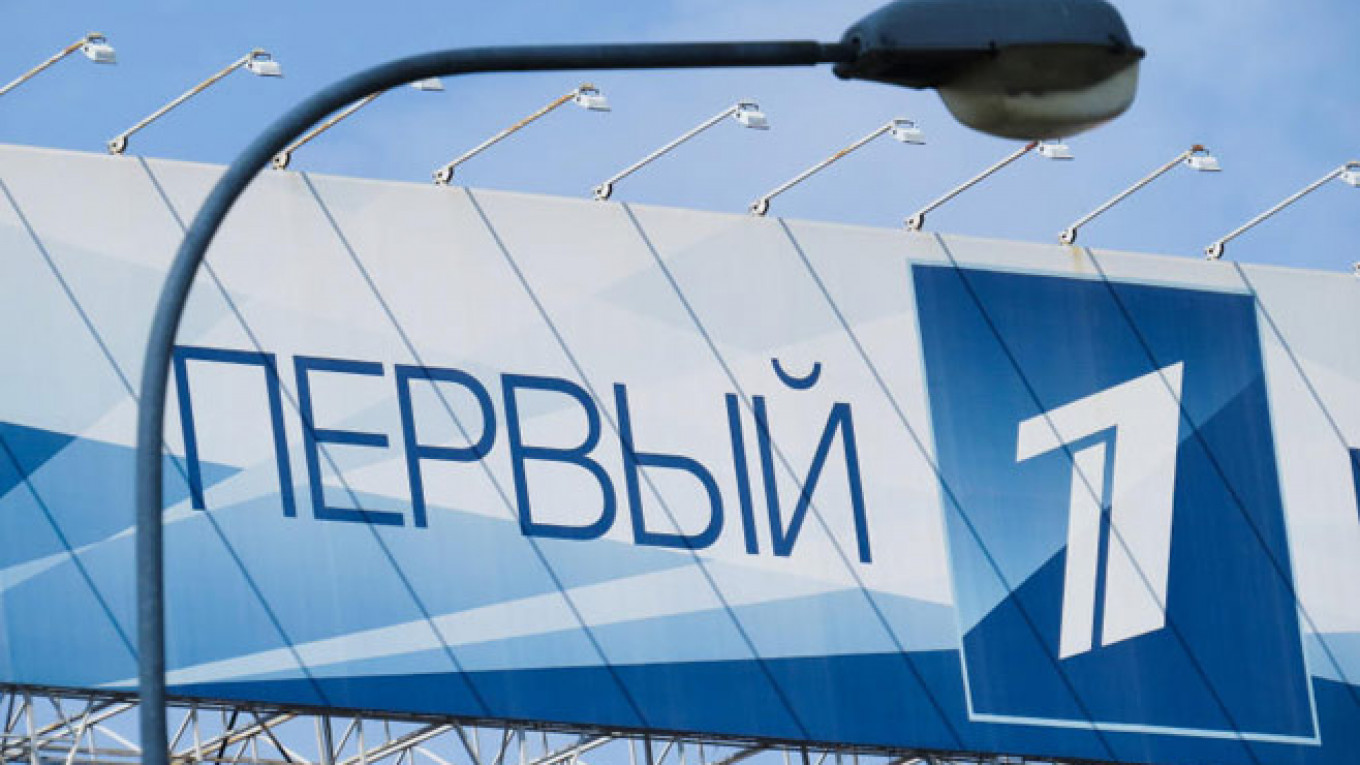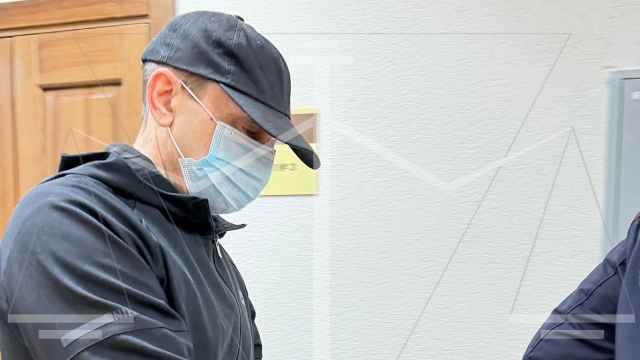Russian state-run television station Channel One has come under fire after airing what was reported to be an eyewitness account of a 3-year-old boy having been tortured and crucified by the Ukrainian military in a public square in Slovyansk.
In a report that aired Saturday, a woman named Galina Pyshnyak claimed to have witnessed the grisly incident. At the time, she was speaking with Channel One from a refugee camp in Russia's Rostov region.
In the immediate aftermath of the broadcast, a number of prominent politicians, bloggers and journalists reacted to the report with suspicion and indignation, saying it represented a new low for Russia's state-run media in the ongoing information war over Ukraine.
"For the sake of their goal, these scumbags from the Kremlin and Channel One are prepared to surpass even [Joseph] Goebbels. And they already have," opposition politician Boris Nemtsov wrote on his Facebook page Sunday.
As Pyshnyak told it, Ukrainian troops nailed a 3-year-old boy to a post in a city square, slit his sides open and forced his mother to watch as he bled out.
The mother was then tied to a tank and dragged through the square, Pyshnyak said.
Critics have argued that the report was a complete work of fiction.
"Are they completely sick to come up with something like that? … The people who orchestrate such things are dangerous for society, and what they are doing is a crime," opposition campaigner Alexei Navalny wrote on his blog Sunday.
Several journalists suggested that inspiration for the story — if it is indeed fictional — may have come from Alexander Dugin, a ultraconservative political scientist with known ties to the Kremlin.
On July 9, Dugin posted a story almost identical to Pyshnyak's via Facebook, though in that account the victim was six years old and the father was also executed.
Channel One has yet to comment on the matter. A request for comment sent Monday afternoon remained unanswered by print time.
Pyshnyak claimed that there had been several witnesses to the event. Yet there has been no video confirmation that such a killing took place — something critics have seized upon as a sign of foul play.
Russian journalist Yevgeny Feldman of the opposition-minded Novaya Gazeta newspaper went to the scene of the purported incident in Slovyansk to ask residents whether they'd seen or heard of any such atrocity. In a nine-minute video posted on YouTube, the local residents he approached consistently said that no such scene had occurred.
"This is the first I'm hearing of it, from you," one woman said.
Alan Cullison of The Wall Street Journal, who was in Slovyansk the day after the execution was alleged to have taken place, also said he had heard nothing of the sort.
"I spoke with dozens of people, but strangely, none of them mentioned anything about the crucifixion of a 3-year-old boy," Cullison wrote on Facebook on Monday.
Other journalists have poked holes in the story as well. Although Pyshnyak said the incident occurred in Slovyansk's Lenin Square, critics have asserted that the city has no square by that name. Rather, the city has an October Revolution Square. Many have also asserted that all contact information available for Pyshnyak online says she is from Donetsk, not Slovyansk.
See also:
Russian Investigators Target Ukraine Minister in 'Organized Murder' Probe
A Message from The Moscow Times:
Dear readers,
We are facing unprecedented challenges. Russia's Prosecutor General's Office has designated The Moscow Times as an "undesirable" organization, criminalizing our work and putting our staff at risk of prosecution. This follows our earlier unjust labeling as a "foreign agent."
These actions are direct attempts to silence independent journalism in Russia. The authorities claim our work "discredits the decisions of the Russian leadership." We see things differently: we strive to provide accurate, unbiased reporting on Russia.
We, the journalists of The Moscow Times, refuse to be silenced. But to continue our work, we need your help.
Your support, no matter how small, makes a world of difference. If you can, please support us monthly starting from just $2. It's quick to set up, and every contribution makes a significant impact.
By supporting The Moscow Times, you're defending open, independent journalism in the face of repression. Thank you for standing with us.
Remind me later.






